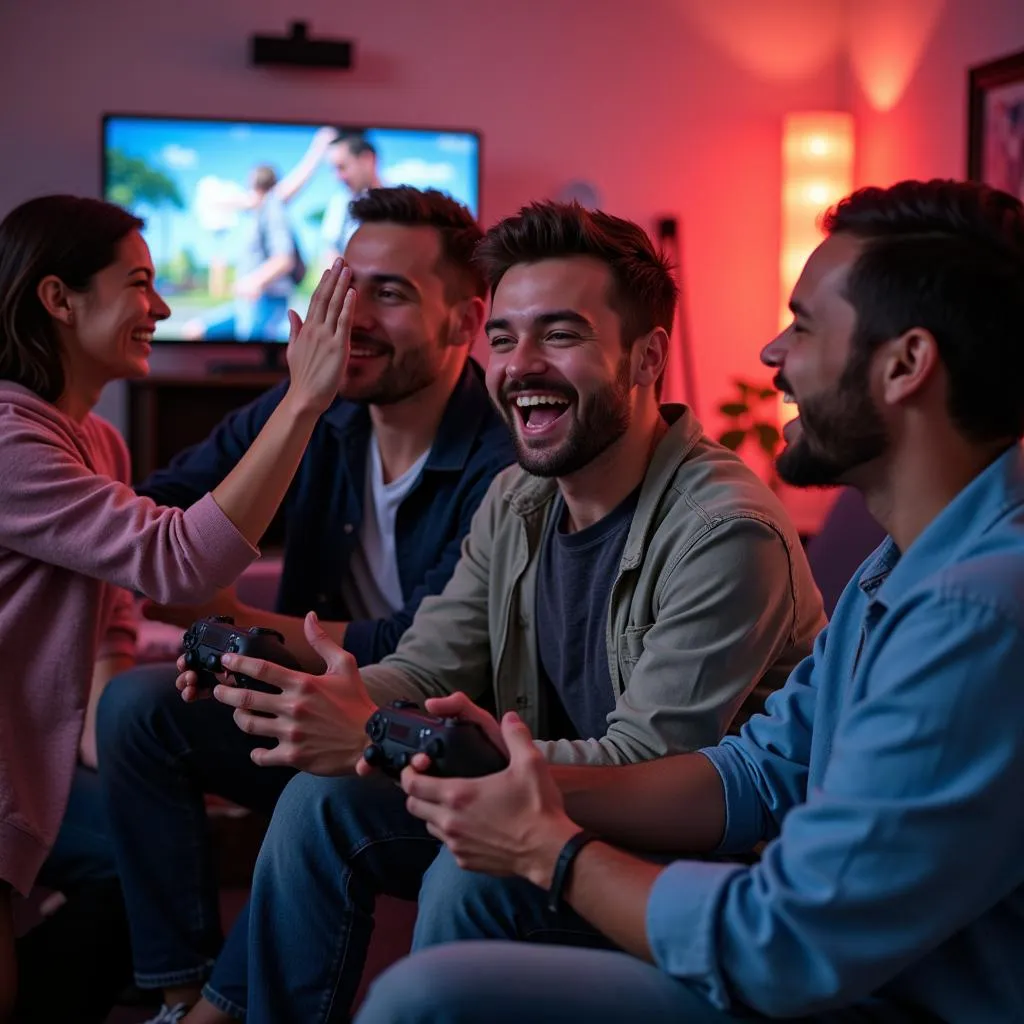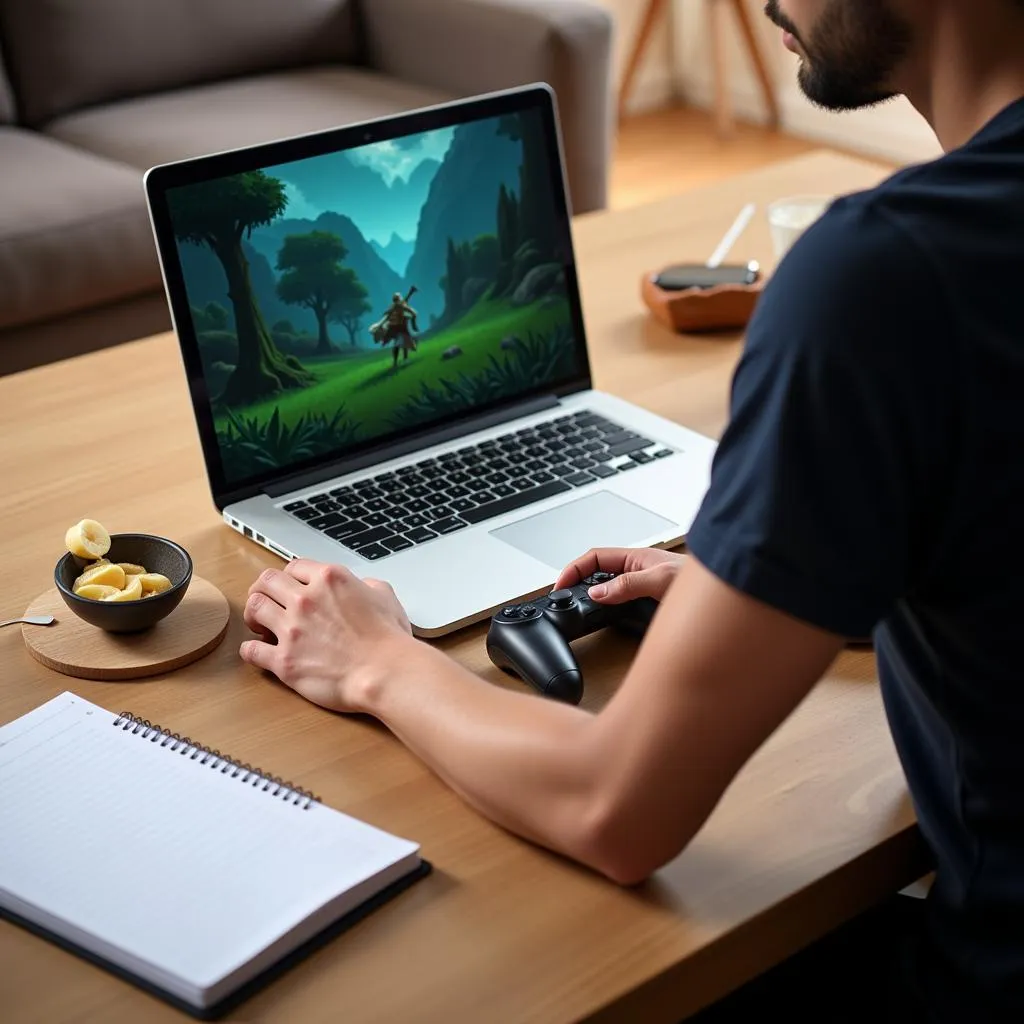The age-old dilemma: to game or not to game? It’s a question that echoes through the minds of millions, from casual players to hardcore enthusiasts. We get it – the allure of immersive worlds, thrilling adventures, and the camaraderie of online communities can be hard to resist. But, there’s always that nagging voice questioning if it’s all too good to be true. Well, fear not, fellow gamers and those on the fence! This article delves into the “should I or shouldn’t I game” conundrum, helping you find your sweet spot between pixelated adventures and real-life responsibilities.
The Allure of Gaming: Why We Love the Virtual World
Let’s face it, gaming offers an escape from the mundane, a chance to be anyone, do anything, and explore the impossible. But beyond pure entertainment, there’s more to this digital passion than meets the eye.
- Stress Relief and Relaxation: Immersing yourself in a game can be a fantastic way to de-stress after a long day. The act of focusing on a task, strategizing, and achieving goals triggers the release of dopamine – the feel-good hormone.
- Cognitive Benefits: Believe it or not, gaming can sharpen your mind! Strategy games, puzzles, and even fast-paced action titles enhance problem-solving skills, boost reaction times, and improve hand-eye coordination.
- Social Connection and Belonging: Online gaming communities offer a sense of belonging, especially for those who find it hard to connect in real-life settings. Working together towards a common goal, sharing strategies, and celebrating victories fosters strong social bonds.
 Gamers enjoying themselves in a social setting
Gamers enjoying themselves in a social setting
The Flip Side: Potential Drawbacks of Excessive Gaming
While the benefits are undeniable, it’s crucial to acknowledge the potential downsides of excessive gaming. Like any enjoyable activity, moderation is key to reaping the rewards without falling prey to its pitfalls.
- Time Management Issues: Gaming can be incredibly addictive. Hours can melt away unnoticed, potentially impacting work, studies, and personal relationships.
- Physical Health Concerns: Prolonged gaming sessions often mean prolonged sitting, which can lead to eye strain, back problems, and a lack of physical activity.
- Social Isolation: While online gaming can foster connections, excessive indulgence can ironically lead to social isolation, neglecting real-life relationships and responsibilities.
Finding Your Gaming Equilibrium: Tips for a Healthy Balance
So, how do you navigate the gaming world responsibly and strike a balance that works for you? Here are some practical tips:
1. Set Realistic Gaming Limits:
- Schedule Dedicated Gaming Time: Instead of spontaneous, open-ended sessions, allocate specific days and times for gaming, treating it like any other hobby.
- Use Timers and Reminders: It’s easy to lose track of time when engrossed in a game. Set alarms or use timer apps to help you stay within your allocated gaming window.
2. Prioritize Real-Life Responsibilities:
- Gaming Should Never Overshadow Essentials: Work, studies, relationships, and self-care should always come first.
- Complete Essential Tasks Before Gaming: Avoid using gaming as procrastination. Finish your responsibilities and then enjoy guilt-free gaming sessions.
 Person organizing their day with a planner, including time for gaming
Person organizing their day with a planner, including time for gaming
3. Listen to Your Body and Mind:
- Recognize Signs of Gaming Burnout: Feeling exhausted, irritable, or losing interest in activities you used to enjoy could indicate excessive gaming.
- Take Regular Breaks: Step away from the screen every hour for at least 5-10 minutes. Stretch, move around, and give your eyes a break.
4. Engage in Other Hobbies and Activities:
- Diversify Your Interests: Explore other hobbies and interests that bring you joy and fulfillment outside the digital realm.
- Socialize Offline: Make time for face-to-face interactions with friends and family. Join a club, attend events, or simply grab coffee and catch up.
Should You or Shouldn’t You Game? It’s Your Call!
Ultimately, the decision of whether or not to game, and how much, boils down to personal preference and finding a balance that works for you. By acknowledging both the advantages and disadvantages, setting healthy boundaries, and prioritizing your well-being, you can enjoy the world of gaming responsibly and make it a positive part of your life. Remember, it’s all about finding the sweet spot where pixels and reality coexist harmoniously.





